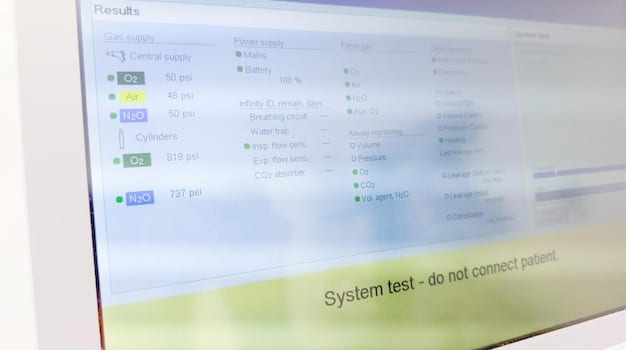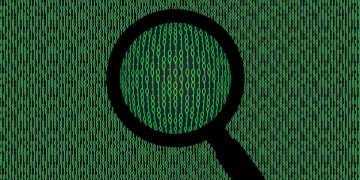Altcoin Development Tools: Essential Resources for Building New Blockchains

Altcoin development tools are essential resources that span IDEs, SDKs, and testing environments, empowering developers to create, test, and deploy new blockchain-based cryptocurrencies efficiently and securely.
Developing an altcoin requires a robust set of tools to ensure functionality, security, and efficiency. Knowing which altcoin development tools are essential can significantly streamline the process and enhance the quality of the final product.
Essential Integrated Development Environments (IDEs) for Altcoins
An Integrated Development Environment (IDE) is the cornerstone of any software development project. For altcoin development, choosing the right IDE can dramatically improve coding efficiency and reduce errors.
Key Features of an Altcoin-Focused IDE
When selecting an IDE for altcoin development, look for features like syntax highlighting, debugging tools, and integration with blockchain networks. These features can simplify the development process and help ensure the altcoin functions as intended.
Popular IDEs for Blockchain Development
Several IDEs are popular among blockchain developers, including Remix IDE, Visual Studio Code, and Atom. Each offers unique advantages and tools that can be tailored to your specific development needs.
- Remix IDE: A browser-based IDE ideal for writing and deploying smart contracts on Ethereum and other compatible blockchains.
- Visual Studio Code: A versatile IDE with extensions for various programming languages and blockchain development frameworks.
- Atom: An open-source text editor that can be customized with packages to support blockchain development tasks.
Choosing the right IDE depends on the specific requirements of your altcoin project. Consider the programming languages you’ll be using, the blockchain networks you’ll be targeting, and the level of customization you require.
Crucial Software Development Kits (SDKs) for Blockchain Projects
Software Development Kits (SDKs) provide developers with pre-built tools, libraries, and documentation needed to interact with specific blockchain platforms. These kits are essential for integrating your altcoin with existing blockchain infrastructure.

Benefits of Using SDKs in Altcoin Development
SDKs streamline development by providing ready-made functions and interfaces for common blockchain operations. This reduces the amount of custom code you need to write and simplifies the integration process.
Notable SDKs for Different Blockchains
Different blockchains have their own SDKs tailored to their specific architectures and protocols. Some popular options include Web3.js for Ethereum, BitcoinJ for Bitcoin, and various SDKs for platforms like Cardano and Polkadot.
- Web3.js: A JavaScript library that enables you to interact with Ethereum nodes and smart contracts.
- BitcoinJ: A Java library for working with the Bitcoin protocol, allowing you to build Bitcoin-based applications.
- Cardano SDK: Provides tools and libraries for developing applications on the Cardano blockchain.
Selecting the right SDK is crucial for ensuring compatibility and ease of integration with your target blockchain. Be sure to review the documentation and community support available for each SDK before making a decision.
Essential Testing Environments and Frameworks
Testing is a critical phase in altcoin development to identify and fix bugs, security vulnerabilities, and performance issues before deployment. Robust testing environments and frameworks are essential for this purpose.
Importance of Testing in Altcoin Development
Thorough testing helps ensure the stability, security, and reliability of your altcoin. Failing to test adequately can lead to significant issues post-launch, including financial losses and reputational damage.
Popular Testing Frameworks for Blockchain Applications
Several testing frameworks are designed for blockchain applications, including Truffle Ganache, Embark, and Hardhat. These tools provide local blockchain environments that simulate real-world conditions, allowing you to test your code in isolation.
- Truffle Ganache: A local blockchain emulator that allows you to deploy and test smart contracts in a controlled environment.
- Embark: A comprehensive development framework that includes testing tools and a local blockchain environment.
- Hardhat: An Ethereum development environment that offers advanced testing features and customizable configurations.
Effective testing involves both unit tests and integration tests. Unit tests verify the functionality of individual components, while integration tests ensure that different parts of the system work together correctly. By using a combination of these testing methods, you can identify and address potential issues early in the development process.

Security Analysis Tools and Practices
Security is paramount in altcoin development, as vulnerabilities can lead to exploits, hacks, and loss of funds. Implementing robust security analysis tools and practices is essential for protecting your altcoin and its users.
Common Security Vulnerabilities in Altcoins
Altcoins are susceptible to various security vulnerabilities, including reentrancy attacks, integer overflows, and denial-of-service attacks. Understanding these vulnerabilities is crucial for designing secure code.
Tools for Identifying and Mitigating Security Risks
Several tools are available for analyzing the security of smart contracts and blockchain applications, including static analyzers, dynamic analyzers, and formal verification tools.
- Static Analyzers: Tools that examine code without executing it, identifying potential vulnerabilities based on predefined rules and patterns.
- Dynamic Analyzers: Tools that execute code and monitor its behavior, detecting vulnerabilities that may not be apparent through static analysis.
- Formal Verification Tools: Tools that use mathematical techniques to prove the correctness of code and identify potential flaws with certainty.
In addition to using automated tools, it’s important to conduct manual code reviews and security audits. Engaging experienced security professionals to review your code can help identify vulnerabilities that automated tools may miss.
Blockchain Explorers and Monitoring Tools
Blockchain explorers and monitoring tools are essential for tracking transactions, analyzing network activity, and monitoring the performance of your altcoin. These tools provide valuable insights into the health and behavior of your blockchain network.
Using Blockchain Explorers to Track Transactions
Blockchain explorers allow you to view detailed information about transactions, blocks, and addresses on a blockchain. This can be useful for verifying transactions, tracking funds, and analyzing network activity.
Monitoring Tools for Network Health and Performance
Monitoring tools provide real-time insights into the performance and health of your blockchain network. These tools can alert you to potential issues, such as network congestion, node failures, and security breaches.
Popular blockchain explorers include Etherscan for Ethereum, Blockchain.com for Bitcoin, and various explorers for other blockchains. Monitoring tools often include features for tracking network metrics, visualizing data, and generating alerts.
Collaboration and Version Control Systems
Collaboration and version control are essential for managing code changes, coordinating development efforts, and ensuring code quality. Using a robust version control system and collaboration tools can streamline the development process and reduce errors.
Importance of Version Control in Altcoin Development
Version control systems, such as Git, allow you to track changes to your code over time, revert to previous versions, and collaborate with other developers. This is essential for managing complex projects and ensuring that everyone is working on the same codebase.
Tools for Collaboration and Code Management
Several tools are available for managing code repositories, tracking issues, and coordinating development efforts, including GitHub, GitLab, and Bitbucket. These platforms provide features such as code review, issue tracking, and continuous integration.
Effective collaboration involves clear communication, well-defined roles, and a structured development process. By using version control and collaboration tools effectively, you can improve code quality, reduce errors, and streamline the development process.
| Key Tool 🔑 | Brief Description 📝 |
|---|---|
| 💻 IDEs | Environments for efficient coding and debugging. |
| 📚 SDKs | Toolkits for blockchain platform integration. |
| 🧪 Testing Frameworks | Utilities for bug detection and quality assurance. |
| 🛡️ Security Tools | Analyzers to mitigate security vulnerabilities. |
Frequently Asked Questions (FAQ)
▼
An altcoin is any cryptocurrency that is not Bitcoin. They are often created to improve upon Bitcoin’s perceived limitations, such as scalability or transaction speed.
▼
SDKs provide pre-built tools and libraries that streamline the development process. They simplify integration with blockchain platforms, reducing the need for custom code.
▼
Truffle Ganache is a local blockchain emulator that allows developers to deploy and test smart contracts in a controlled, simulated environment. This enables safe testing.
▼
Security vulnerabilities can be addressed through static and dynamic analysis tools, formal verification, and manual code reviews conducted by experienced security professionals.
▼
Version control systems like Git track code changes, enable collaboration among developers, and allow easy reversion to previous code versions, ensuring stability and coordination.
Conclusion
In conclusion, developing a successful altcoin requires a combination of the right tools and practices—from IDEs and SDKs to testing frameworks and security measures. By leveraging these essential resources, developers can create robust, secure, and efficient blockchain-based cryptocurrencies.





